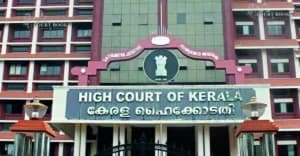In a significant order underscoring the principle of natural justice, the Telangana High Court has permitted an 80-year-old man, convicted under the POCSO Act, to undergo a second DNA test to prove his innocence. The Court emphasized that conviction does not put an end to an individual’s right to defend themselves, especially when doubts arise regarding the veracity of key evidence like a DNA report.
The decision was delivered by a Division Bench comprising Justice Moushumi Bhattacharya and Justice B.R. Madhusudhan Rao, in response to an interlocutory application filed during the pendency of the appeal in Criminal Appeal No. 305 of 2025.
Read Also:- Bombay High Court Denies Bail in Serious POCSO Offence: Emphasizes Victim Protection Over Liberty
Background of the Case
The petitioner, who was earlier convicted under Section 5 and Section 6 of the Protection of Children from Sexual Offences Act, 2012, had been sentenced to rigorous imprisonment for life along with a fine of ₹10,000. He was the first accused in the Sessions Case PCS No.70 of 2022. Notably, his name was not included in the FIR dated 24.09.2021, and only the second accused (a relative of the victim) was named initially. The petitioner was later implicated based on the victim’s statements during medical and police proceedings.
The conviction by the Trial Court was based solely on a DNA test, which concluded that the petitioner was the biological father of the foetus, thereby inferring that he had committed sexual assault on the minor victim.
Court’s Observations and Findings
The High Court examined the material and arguments presented. It noted that although the prosecution did not object to the second DNA test, they relied on the conclusiveness of the original forensic report.
Read Also:- POCSO Convict Gets Bail from Allahabad High Court After Marrying Victim and Having a Child
“A conviction does not extinguish the right to defend, particularly where doubt regarding crucial evidence could result in its exclusion,”
observed the bench.
Several critical observations were made by the Court:
- The chain of custody was not adequately established, as crucial letters from the Assistant Commissioner of Police referred to in the DNA report were not marked as exhibits.
- The report used the term ‘conclusively’, which was questioned in the context of Supreme Court judgments, such as Kamti Devi vs. Poshi Ram.
“Only a mismatch in DNA results can conclusively prove non-paternity. The contrary doesn’t automatically establish guilt.”
Furthermore, the Court found procedural irregularities regarding the handling of biological samples. While DNA testing requires only a microscopic amount of sample (0.5 to 1.0 nanograms), 100 grams of foetal bone tissue had reportedly been used up entirely. This raised suspicions over the previous procedure.
The petitioner, being 80 years old, continued to remain in prison based solely on this questionable evidence. The Court recognized the serious risk he took by seeking a second DNA test—something an accused would not typically do unless confident of the outcome.
Read Also:- Allahabad High Court Criticizes Live-In Relationships While Granting Bail in POCSO Case
“It would be a suicidal move to seek re-examination unless the petitioner was certain of exoneration.”
After thorough deliberation, the Court allowed the application for a second DNA test under strict guidelines:
- The test will be conducted at Centre for DNA Fingerprinting and Diagnostics (CDFD), Uppal, Hyderabad.
- The petitioner may approach the Judicial Magistrate for appropriate directions regarding the collection of fresh blood samples.
- The DNA testing process must be completed within eight weeks from receipt of the order.
- The cost of the DNA test will be borne by the petitioner.
- The petitioner retains the right to file further applications based on the results of the second test.
Additionally, the Central Prison at Chanchalguda was directed to facilitate the process by deputing officials to assist in the collection of samples and ensure compliance with the order.
Case Title: Sri P. Krishna Prakash v. State of Telangana
(Criminal Appeal No. 305 of 2025; I.A. No. 1 of 2025)















